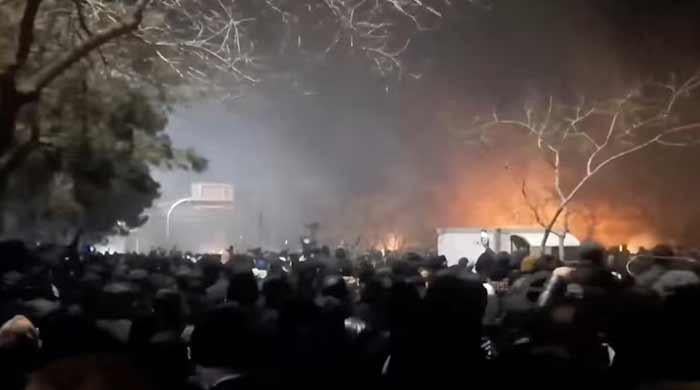Contempt law: AG objects over 4 judges
ISLAMABAD: The Supreme Court of Pakistan resumed hearing of various identical petitions challenging the Contempt of Court Act 2012 Thursday where the attorney general objected over four out of five...
August 02, 2012
A five-member bench of the apex court, headed by Chief Justice Iftikhar Muhammad Chaudhry and comprising Justice Shakirullah Jan, Justice Khilji Arif Hussain, Justice Jawwad S Khawaja and Justice Tassaduq Hussain Jillani, resumed hearing 27 identical petitions challenging the Contempt of Court Act, 2012.
During today’s proceedings, Attorney General Irfan Qadir objected over the four judges who are included in the bench hearing the contempt petitions. He was of the view that apparently four judges appear to be biased. On this, the chief justice remarked that he was trying to defame the judiciary and this was not the first time that he attempted to do so.
The federation’s counsel in the contempt law case, Abdul Shakoor Paracha, while arguing before the court on Tuesday, admitted that the Contempt of Court Act, 2012 might have been promulgated to protect the second prime minister from disqualification, submitting that everybody knew that law was never made in isolation or without motive.
Meanwhile, remarking that legislation is parliament’s job and the SC has the constitutional right to interpret the law during adjudication of matters placed before it, Chief Justice Iftikhar Chaudhry observed that the Contempt of Court Act, 2012 violated the principle of equity and equality and had been made only to save the new prime minister.
The chief justice observed that the government’s claim that the new contempt law was without flaws was incorrect and all matters of public interest could be taken up in courts.
Expressing concern over non-implementation of Article 9, 24 and 25, the chief justice asked the government through its counsel to ensure enforcement of the relevant provisions of the Constitution to protect the life and property of citizens.
The federation’s counsel contended that the instant petitions were based on speculations and apprehensions, adding that the petitioners had failed to identify which Islamic injunction was violated through the enactment of the new contempt of court law.











